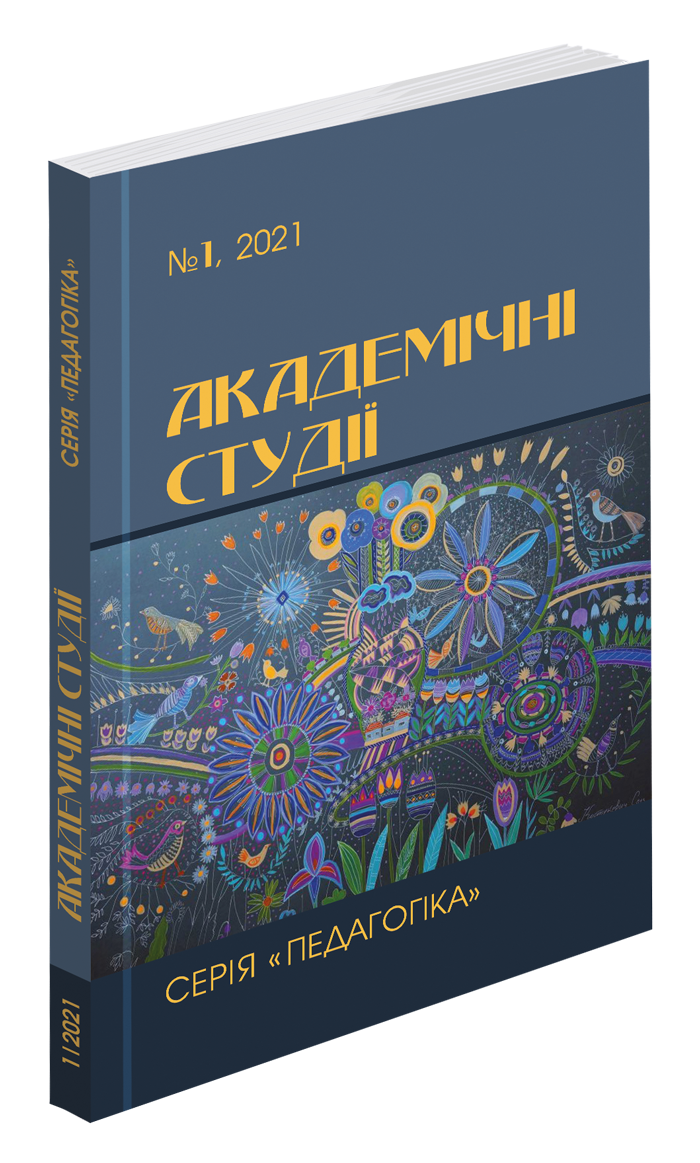Abstract
The main stages of formation and implementation of the strategy of sustainable development are considered in this article. It is noted that modern world trends aim national economy to transition to a new ideology of life, ecologically oriented society by forming a high level of environmental education in the interests of sustainable development. In the current year the environmental imperative and paradigm should become the guiding principles in the practice of training specialists in any field of activity, including future teachers. In this context, the essence of environmental education as a necessary component of education for sustainable development is revealed. On the one hand, it must be an independent element of the general education system, and on the other hand, it plays an integrative role in the formation of education for sustainable development. Based on the analysis of the level of environmental education of students of the Faculty of Primary Education and Physical Culture of the Municipal Higher Educationаl Institution «Lutsk Pedagogical College» of the Volyn Regional Council, it is noted that gradual apdaiting of educational content with the inclusion of the ideas of sustainable development in the standards of higher education in Ukraine is necessary to increase the level of environmental education as a component of education for sustainable development. Ecological education in the process of professional training of the future teacher will provide improvement of educational process, will allow to open all potential possibilities of the the New Ukrainian School teacher as the leader of ideas of sustainable development of Ukraine.
References
Бондар О., Барановська В., Єресько О. Екологічна освіта для сталого розвитку у запитаннях та відповідях: науково-методичний посібник для вчителів. Херсон : 2015. 228 с.
Концепція екологічної освіти в Україні : Рішення Колегії МОНУ від 20.12.2001 № 13/6-19. URL: https://zakon.rada.gov.ua/rada/show/v6-19290-01#Text (дата звернення: 21.03.2021).
Крисаченко В. Екологія. Культура. Політика : концептуальні засади сучасного розвитку. Київ : Знання України, 2001. 598 с.
Куценко В., Трілленберг Г. Екологічна освіта – важливий інструмент сталого розвитку. Економіка природокористування і охорони довкілля. 2014. № 2014. С. 20–22.
Національна доктрина розвитку освіти України : Указ Президента України від 17.04.2002 р. N 347/2002. URL: https://zakon.rada.gov.ua/laws/show/ 347/2002#Text (дата звернення: 26.03.2021).
Патон Б. Національна парадигма сталого розвитку України. Київ: Інститут економіки природокористування та сталого розвитку Національної академії наук України, 2012. 72с. URL: http://ecos.kiev.ua/ share/upload/Dopovid_nacionalna_paradygma_stalogo_rozvytku.pdf (дата звернення: 25.03.2021).
Проекти концепції сталого розвитку України: можливість їх вдосконалення та застосування. Аналітична записка. URL: http://www.niss.gov.ua/articles/ 1566/ (дата звернення: 23.03.2021).
Січко І. Екологічна освіта й виховання як елементи стратегії сталого розвитку. Науковий вісник Миколаївського національного університету імені В. О. Сухомлинського. Серія: Педагогічні науки. 2016. Випуск 4. С. 173–178.
Цілі Сталого Розвитку України: Національна доповідь. URL: http://menr.gov.ua/files/docs (дата звернення: 22.03.2021 ).
Agenda 21: United Nations Conference on Environment. Development Rio de Janerio. 3–14 June 1992. URL: https://sustainabledevelopment.un.org/ outcomedocuments/ agenda21 (Last accessed: 26.03.2021).
Meadows D., Randers J., (1972). The Limits to Growth. Universe Books.URL:https://www.clubofrome.org/publication/the-limits-to-growth/ (Last accessed: 24.03.2021).
Paige К. (2017). Educating for sustainability: environmental pledges as part of tertiary pedagogical practice in science teacher education. Asia-Pacific Journal of Teacher Education. URL : https://doi.org/ 10.1080/1359866X.2016.1169504 (Last accessed: 21.03.2021).
Walshe N., Tait V. (2019). Making connections: a conference approach to developing transformative environmental and sustainability education within initial teacher education. Environmental Education Research. URL: https://doi.org/10.1080/13504622.2019.1677858 (Last accessed: 22.03.2021).
